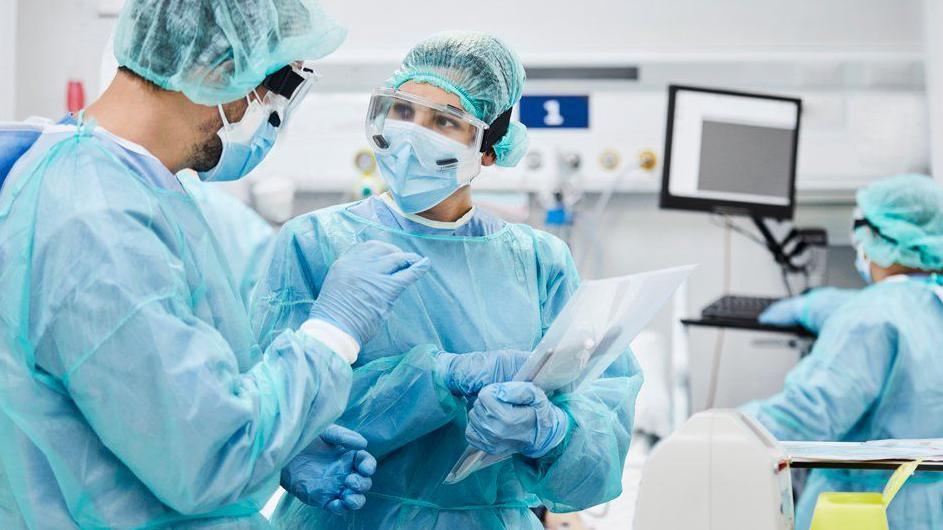Tax wealthy to boost NHS and education, say Greens

The Welsh NHS needs money, not just "warm words", says the Wales Green Party
- Published
Billions of pounds could be injected into health, education, housing and transport in Wales by raising taxes on the "super-wealthy", according to the Wales Green Party.
Ahead of launching its general election manifesto on Wednesday, party leader Anthony Slaughter said the money was needed "to bring our public services back from the brink".
"After years of soaring inequality, that money has to come from the richest individuals and companies," he said.
The party said its manifesto would offer an "inspirational, progressive vision for a Wales that's desperate for change".
Labour won't 'fiddle' with police powers - Stevens
- Published18 June 2024
Some areas need more immigration, says Plaid leader
- Published17 June 2024
Most on sickness benefit can work - Tory minister
- Published16 June 2024
The Greens are proposing a new wealth tax of 1% a year on assets of over £10m, rising to 2% on assets worth more than £1bn.
They also want the UK government to increase borrowing to raise the level of public investment.
They said they would raise Universal Credit by £40 a week and increase the national minimum wage to £15 an hour for everyone over 16.
The party backs independence for Wales and wants the Senedd to be given the same powers as the Scottish Parliament, as the first step on a journey towards leaving the United Kingdom.
Holyrood has more control over welfare benefits, tax and policing.
Mr Slaughter said: "Warm words will not rescue our NHS. Labour is misleading the public by claiming its plans will make a difference.
"Their pitiful spending plans would amount to cuts worse than austerity under the Tory and Lib Dem coalition."
The plans to raise Universal Credit and the minimum wage would "fight the disgraceful levels of child poverty we have in Wales”, he said.
The manifesto will also call for action on climate change and biodiversity to be prioritised, "creating new green jobs and supporting people economically through the changes needed".
Green candidates are standing in all 32 Welsh seats at the general election, taking place on 4 July.
